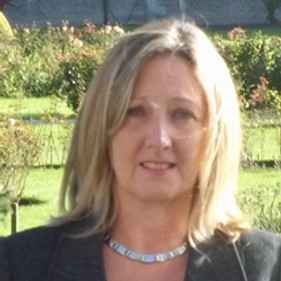Reviewed By Pamela Kirkpatrick - Senior Accredited NCS & Registered Member MBACP Adv. Dip.
Dealing with Conflict in Relationships
15 November 2022
uHub Therapy Centre - BangorConflict in relationships is not always negative, if both partners are willing it can provide an opportunity for making change and can help identify and solve problems.

Lillian Neill
Counsellor, Higher Diploma in Marriage & Relationship Counselling
Disagreements are a fact of life in many interpersonal relationships, even the strongest and healthiest relationships may face conflict from time to time. It’s natural to not always share thoughts and opinions with your partner, or to have arguments.
Conflict in relationships is not always negative, if both partners are willing it can provide an opportunity for making change and can help identify and solve problems. It is important that you COMMUNICATE EFFECTIVELY which allows you to understand each other better and make your relationship stronger.
Main Causes of Conflict in Relationships
- Lack of communication
- Criticism
- High expectations
- Selfishness
- Household responsibilities
- Insecurity
Conflict Resolution Styles
Most people know that in order to resolve conflicts, we need to communicate about the issue; but negative patterns of communication can often lead to greater frustration and result in heated arguments, trading insults, increasing feelings of hurt and resentment and causing disconnection in relationships which, if not addressed, can lead to irreparable damage and break ups.
We all have different ways of resolving conflict based on what we have experienced in our lives. Examples of these could be –
- Some people are instant fixers, wanting issues to be resolved immediately
- Some are processors and need time to reflect before responding.
Both methods are ok but can cause increased tension if we do not learn to respect each other’s way of processing and resolving conflict.
Ongoing tension in relationships can have a negative impact on individuals physical and mental health causing anxiety, depression, and poor quality of sleep, therefore it is important to recognise when you need support or professional help.
Need more support?
Relationship counselling can provide a safe space for couples and individuals to explore issues impacting on their relationship and possibly identify underlying issues causing conflict.
An experienced counsellor can help you to explore at depth your history of conflict in past or current relationship in a safe and non-judgemental environment. They can help you think about how you react to conflict and support you to work on strategies to help you manage and resolve conflict more effectively.
Featured Organisation
Local
uHub is a counselling service with a multi-disciplinary approach to emotional health and well-being. We provide a safe and confidential environment where feelings can be explored. We work from an integrated approach, psychodynamic/person centred which we tailor to meet the needs of each individual so they can get the best possible service and experience from their counselling.
Get Inspired Further
feed a family of 5 for a week for under 25
I’ve come up with a simple low cost meal plan for a family of 5. We based it on a food shop at ASDA using mostly ESSENTIALS RANGE of food items.
considering starting counselling
You may be considering counselling or therapy for the first time and we understand what a daunting process it can be making the first steps to reach out for help.
mindfulness beginner advice
Mindfulness is the foundation of self-compassion.




